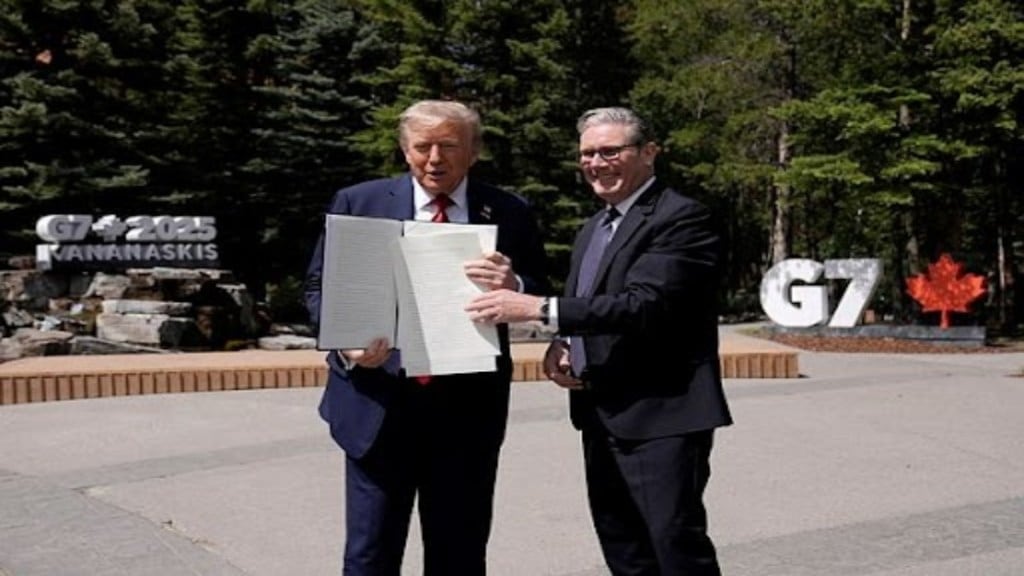US-UK trade deal: US President Donald Trump and British Prime Minister Keir Starmer on Monday signed an agreement to lower tariffs on several key British exports to the United States, marking a breakthrough in transatlantic trade relations. The announcement came on the sidelines of the G7 Summit in Canada, where the two leaders emphasised a renewed commitment to strengthening economic ties. While not a full-fledged free trade agreement, the deal eliminates or reduces tariffs in the automotive and aerospace sectors and provides a roadmap for future negotiations.
Major gains for British automotive and aerospace industries
According to the executive order released by the White House, the agreement reaffirms quotas and tariff rates on British automobiles, allowing 100,000 UK-made vehicles to enter the US annually at a 10 per cent tariff significantly below the 25 per cent rate other nations face. The deal also eliminates tariffs on UK aerospace exports, including aircraft and components, offering a substantial boost to Britain’s aviation industry.
Prime Minister Starmer hailed the agreement as “a very good day for both of our countries,” calling it “a real sign of strength” in the US-UK partnership.
Steel, aluminum tariff issue still unresolved
One major sticking point remains tariffs on British steel and aluminum. Though Britain had temporarily avoided the 25 per cent tariffs levied on other nations earlier this month, a quota-based exemption system is now being proposed. The US intends to impose a volume-based quota, provided the UK can demonstrate secure supply chains and responsible production practices. Commerce Secretary Howard Lutnick will determine the quota levels.
Agricultural and pharmaceutical tariff details also pending
The agreement also touches on agriculture, with the UK agreeing to reciprocal access for 13,000 metric tons of US beef, provided it meets UK food safety standards. However, critical sectors such as pharmaceuticals were not fully addressed. UK Trade Secretary Jonathan Reynolds stated that both sides are working toward “significantly preferential outcomes” for the pharmaceutical sector and to shield it from future Section 232 investigations, which could bring new tariffs.
Trump’s G7 exit amid Middle East crisis
While celebrating the agreement, President Trump acknowledged the urgency of international crises, particularly the escalating conflict in the Middle East. The White House confirmed he would leave the G7 Summit early to return to Washington. “Much was accomplished,” said White House Press Secretary Karoline Leavitt in a tweet, “but because of what’s going on in the Middle East, President Trump will be leaving tonight after dinner.”
Meanwhile, though partial, Britain becomes the first nation to secure a tariff-lowering deal from the Trump administration. As Trump declared while signing the order, “It’s done,” though several important details including steel tariffs and pharmaceutical access remain subjects of ongoing negotiation.

